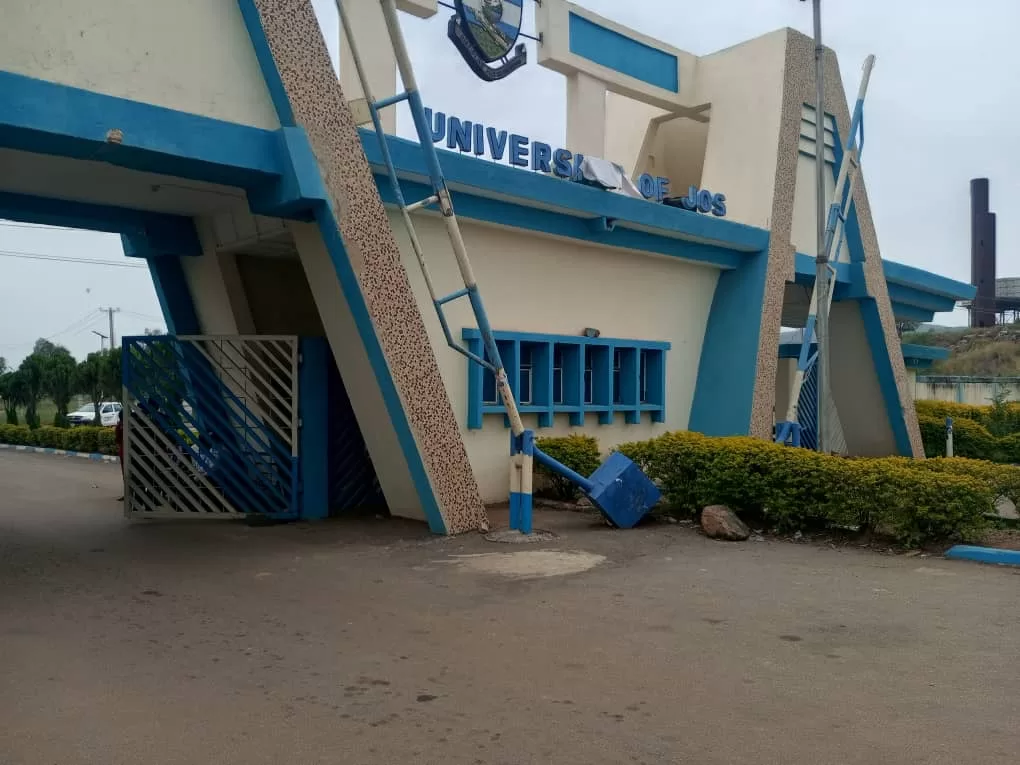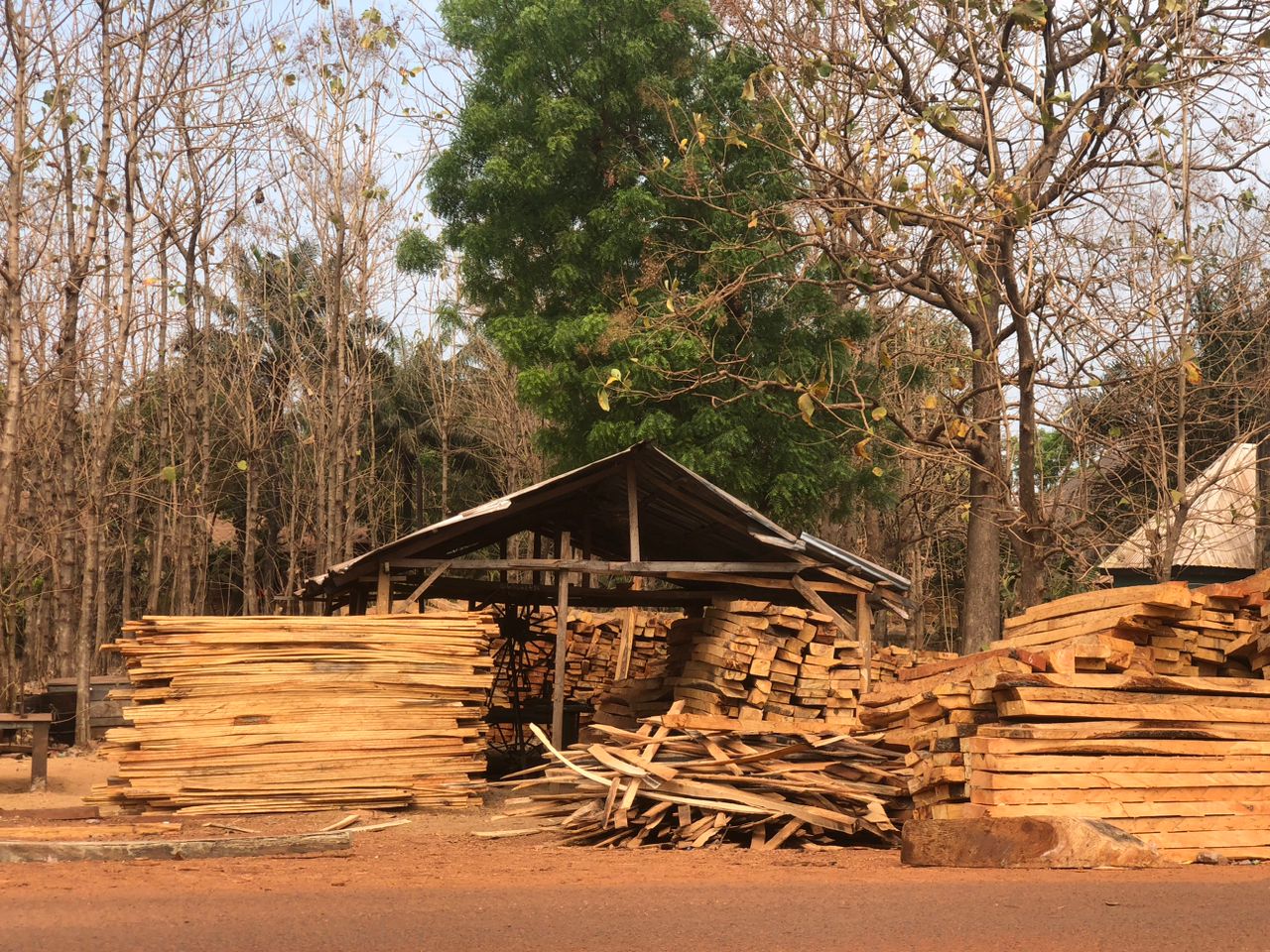Manasseh Mbachii, one of TheMiddlebelt Reporters’ journalists, has been selected for the 2024 UDEME Accountability Reporting Fellowship program. The 2024 UDEME Accountability Reporting Fellowship is hosted by the UDEME, an accountability and transparency project of the Centre for Journalism Innovation and Development. Manasseh is among the twenty-one journalists selected out of the over 300 applications received both from Nigeria and Ghana for the six-month cross-country reporting fellowship and has undergone a two-day virtual capacity-building training. With this fellowship, Manasseh and twenty others will identify red flags in budget line items and unique patterns/trends in contract awards at the sub-national level, thereby setting the agenda for a transparent budget process in West Africa. Uchenna Igwe, the moderator of the fellowship, while addressing fellows at the two-day capacity-building training, said that the fellowship will focus on agriculture, education, health, and public infrastructure while placing emphasis on gender inclusion. During the training sessions, fellows were trained on investigative reporting, data for accountability reporting, budget formulation and process, and the role of journalists in the Nigeria Agenda 2050, drawing seasoned facilitators and journalists across Nigeria who helped in discussing the sessions. Tobi Oluwatola, the Executive Director of CJID, and CJID’s Deputy Director for the Accountability Programme, Mboho Eno, in their separate speeches, remarked the fellowship is aimed at building the capacity of journalists on the importance of data in social accountability and driving impact for investigative reporting in West Africa. Dapo Olorunyomi, the Chief Executive Officer (CEO) of the Centre for Journalism Innovation and Development, stated the legal basis for accountability journalism citing Section: 22 of the Nigeria’s Constitution and 162 {5} of the Ghana’s Constitution that mandated journalists to deliver on the goals of accountability in journalism. Dapo stated; “The first role of journalism in democracy is to serve as a mechanism of accountability.” On Data for Accountability, CJID’s Director of Programs, Akintunde Babatunde emphasized a need for fellows to collaborate with experts and organizations specializing in data analysis to ensure transparency in data sources and methodology while maintaining ethical standards and respect for privacy and security. In her closing remarks, the Program Manager for UDEME-CJID, Ijeoma Okereke congratulated fellows on their selection for the 2024 UDEME Accountability Fellowship and for successfully taking part in our 2-day training and information session, adding that story grants will be issued on a rolling basis within the fellowship period. The 2024 UDEME Social Accountability Reporting Fellowship is the project of the Centre for Journalism Innovation and Development (CJID), which seeks to build the capacity of journalists to identify red flags in budget line items and unique patterns/trends in contract awards at the sub-national level, thereby setting the agenda for a transparent budget process in West Africa.
CJID
“At a point, I felt as if I was at the end of my life; the ordeal is better imagined than experienced,” she said.
Mike Ede, 56, from Opiruku, Oju Local Government Area of Benue State, North-central Nigeria, couldn’t believe that her ever fertile land that was a source of healthy products could reduce in nutrients as he stood looking at the piece of land. “Only but a glorified farmland,” Ede’s thought betrayed him aloud as he tried hard to swallow the pain. Mr Ede wouldn’t have worried enough if only the trend is just on a piece of land, but across many farmlands in “Orihi” and “Iyato”- the two most fertile areas where foods are grown in the local government, at least that is accessible for him. “There were times all these places were full of trees and covered grasses, you could barely go through them because of the thickness of the grasses,” Mr. Ede explained. He continued, “At that time, a piece of land in this area can give you a double output increase especially if it’s cassava or yam, you could feel the nutrients.” As we speak, it is as dry as anything and the scorching sun around this place wouldn’t even allow you till the land.” Mr. Ede is an established farmer in the Opiruku community whose annual income used to be above N200,000 and just from farming yam. Rice and other farm products are often done mainly for consumption. He would charter a cab from Otukpo, a nearby town of about 25 kilometre just to transport yam produce as far as port-Harcourt, River State capital, for sale. But the trend has changed, Mr. Ede is witnessing a drastic shift as a farmer, going through massive regression and he can no longer boast of such a harvest. “In 2020, during the coronavirus pandemic, yes, there was a lockdown but it didn’t stop me from farming, I made over N200,000 by just supplying yam from my farm. But that is history now, I have resolved to subsistence farming and it’s demeaning to know, people are creating wealth at the detriment of others,” he further lamented. “Life was cool, food security was assured. But all that has changed now. It is very difficult to have a matching return of interest. Not only because of the illegal logging but all the penetration of these heavy-duty vehicles to our lands.” Mr. Ede probably wished that the ugly situation would stop in his community of Opiriku. What he’s not aware of is that other communities like Ipav, in Gboko Local Government, Mballa and Gwer Local Government Areas also suffered deforestation and illegal logging. Statistics Mr. Ede is one of the 1.6 billion people worldwide that depend solely on the forest for food, shelter, medicine, and income as reported by the 2021 Global Forest Goals report. Deforestation is consistently a threat to biodiversity in Nigeria and a report from the Food and Agriculture Organisation of the United Nations (FAO), says that between 2000 and 2005, Nigeria had the highest level of deforestation in the world. 55.7 per cent of the country’s primary forests were lost. Again in 2021, Global Forest Watch reported that Nigeria had lost 96.5kha of natural forest, equivalent to 65.3Mt of CO₂ emissions. According to the Conservation Foundation (NCF), Nigeria had lost 96% of its original forests, no thanks to deforestation. Although drought and deforestation have happened as natural occurrences caused by climate change, human activities have aggravated the disasters in some parts of Nigeria. Sad stories Isaac Obigwa, 54, of the Igwe community in Konshisha Local Government Area could not resist the urge to cry after a heavy downpour swept his yam farm. The year has been tough for him and his family. His hope for his family of seven including one wife and six children is the budding yam farm. It wasn’t long before the hope was dashed. Isaac had gone weeding around his farm the previous day. He said: “I had appreciated God about the farm already. It was going to be harvested within the next two months. But after a heavy downpour. The tragedy happened.” Isaac could only trace the flood to the number of trees that were removed in the farm area in the last years. “Cutting down trees gave way to erosion and that was what happened,” he said, adding that: “It was never like this, I have been farming here for the past three years and it was never flooded. It is not even close to the river. I discovered that there was enough space for water to accumulate. Trees around were cut down and there was nothing to disturb the flow.” Unlike Isaac whose farmland got washed away, Onah Ogiji, 54 years, another farmer in the Ojumole community in Gwer Local Government Area of Benue State, lamented the inability of his farmland to yield crops. According to him, soil erosion has caused hunger as the soil is now unfit for crops because of the direct exposure to the sun. “A few years back, we could confidently boast that farm products are good for our land. It is no longer the same. Nothing yields again in our farmland,” Mr Ogiji said. Borgen Projects explained that “one out of six people rely directly on forests for food, deforestation can lead to overworked soil, which in turn leads to soil erosion. Farmers and surrounding settlements become at risk for famine if the soil becomes unfit for crops”. Poverty as a factor Ega-Ibilla, a community in Oju Local Government Area, like other communities of Obugbehe, Ito, in Obi LGA, have its residents helplessly lamenting the unethical activities of illegal loggers. James Ulegede, 49, in Ega Ibilla, has had a fight with unknown people who have gone to his farmland to cut trees. Mr Ulegede said: “I had just come back from a meeting when my wife told me she heard a sound and like one of the trees in my farm was falling. It was true, luckily, I met who did. “He later offered money for it. I collected it because I couldn’t force my tree to stand back, But how long can we continue with that? “They go about offering little money. At the moment, an average tree is just about 500 to N1,000 depending on the size. “This is how they have made it legal and destroyed our farmlands.” “They go with heavy-duty motors, some known as “Agbigi” are in the forest packing wood to the sawmill on the road.” Suspected loggers react When contacted, Mr. Aruke Simeon, a self-acclaimed leader of the ‘Ichakobe Depot’ an illegal sawmill factory in Ichakobe, in Oju Local Government area, argued that forests are natural gifts and that no one should be threatening another person over it. “Climate change or whatever change you called it does not concern me. The country is already hard. Nobody should scare another person away from the natural gift from God. He continued, “Even the owners of these forests and woods, we pay them. When they dont even feed these woods, we pay them for it before we go with our operations and everyone goes home happy,” Mr. Aruke said. At this point, he threatened the reporter to get away from the factory. Failed Policy To cushion the looming effect of deforestation, Nigeria took a step to introduce various policies like the National Forest Policies of 1988, 2006, and 2020. The plan was to “achieve sustainable forest management that would ensure sustainable increases in the economic, social and environmental benefits from forests and trees for the present and future generation including the poor and the vulnerable group” as written in the objectives of these projects. These policies have not been able to deliver on their objectives. For instance, In the targets goals submitted to Global Forest Goals, Nigeria outlines possible actions and targets toward a sustainable forest. The first goal, “Reverse the loss of forest cover worldwide through sustainable forest management, including protection, restoration, afforestation, and reforestation, and increase efforts to prevent forest degradation and contribute to the global effort of addressing climate change.” Among other descriptions of actions, it planned to establish a Green Cover of 708.46 Km shelterbelt, 382.7ha community woodlots, 369ha community orchard, and 138ha vegetable garden are established across the country’s drylands. Also, goal two states that: “Enhance forest-based economic, social, and environmental benefits, including by improving the livelihoods of forest-dependent people” The country had claimed it has engaged 498 youths as forest guards but there is no data to back this up. However, the bill to empower the guards it claimed to have engaged has only passed the third reading in April 2022. “Government aware of the menace” Contrary to the document, the Director of the Forestry Department of the Federal Ministry of Environment, Rasak Adekola, in a phone call with this reporter, said the the government did not have plans of recruiting ‘forest guards’ but “forest rangers”. “Only the state government may have plans of recruiting forest guards. Currently, at the federal level, we are walking on unleashing a joint task force that would be responsible for maintaining sustainable forest management in the country,” Mr. Adekola said. When asked if the government was aware of the illegal logging across Nigerian forests, the director’s answer was in the affirmative. “We are aware of this illegal and indiscriminate wood logging and deforestation in some parts of the country like Benue. We are also aware that part of it is the way of recovering from COVID-19. However, there are various mitigative plans by the federal government like that of a joint task force which would begin operation in no time,” he said. According to Earth.org, The Federal Ministry of Environment has said that the weak institutional ability to effectively execute sustainable forest management policies and practices contributes to Nigeria’s forest resources decline. The New Humanitarian also reported the government’s dire challenge to address the underlying factors facilitating deforestation in Nigeria, such as weak regulations and an absence of policy support. The new route 2030 is barely eight years ahead and Nigeria, alongside 104 others, has said it will end deforestation. Towards achieving the target, in 2021, Nigeria launched the Reducing Emissions from Deforestation and Forest Degradation (REDD+). According to Mr. Moses Ama, the National Coordinator of the programme, “REDD+” is called readiness where the country puts a pillar to act, recalling that Nigeria has a history of deforestation programme that eventually becomes “REDD+”. He added that only seven states in Nigeria had agreed to be part of the REDD+ programme so far. This report was completed as part of the Centre for Journalism Innovation and Development‘s 2022 Climate Change Media Fellowship in West Africa with funding support from the Centre for Investigative Journalism’s Open Climate Reporting Initiative (OCRI).




